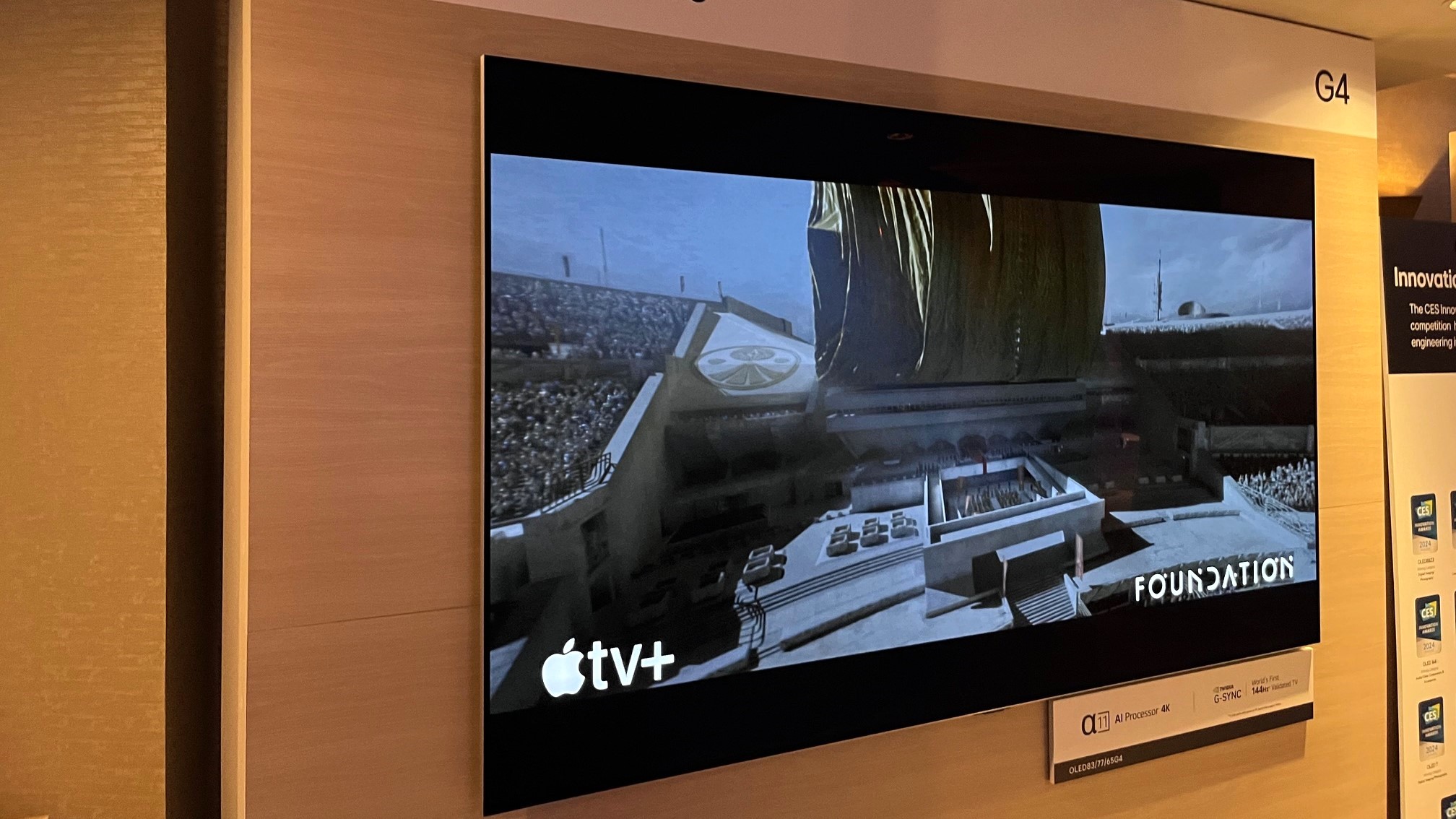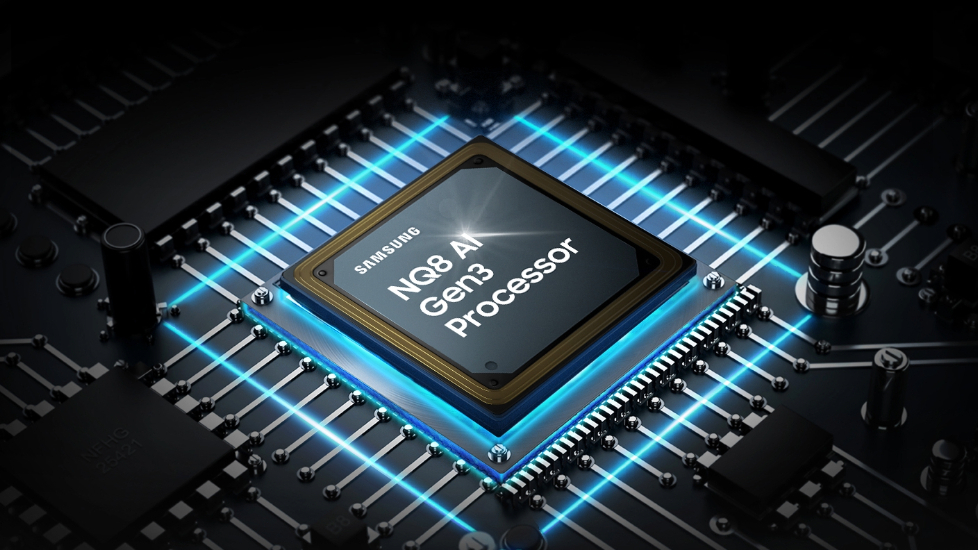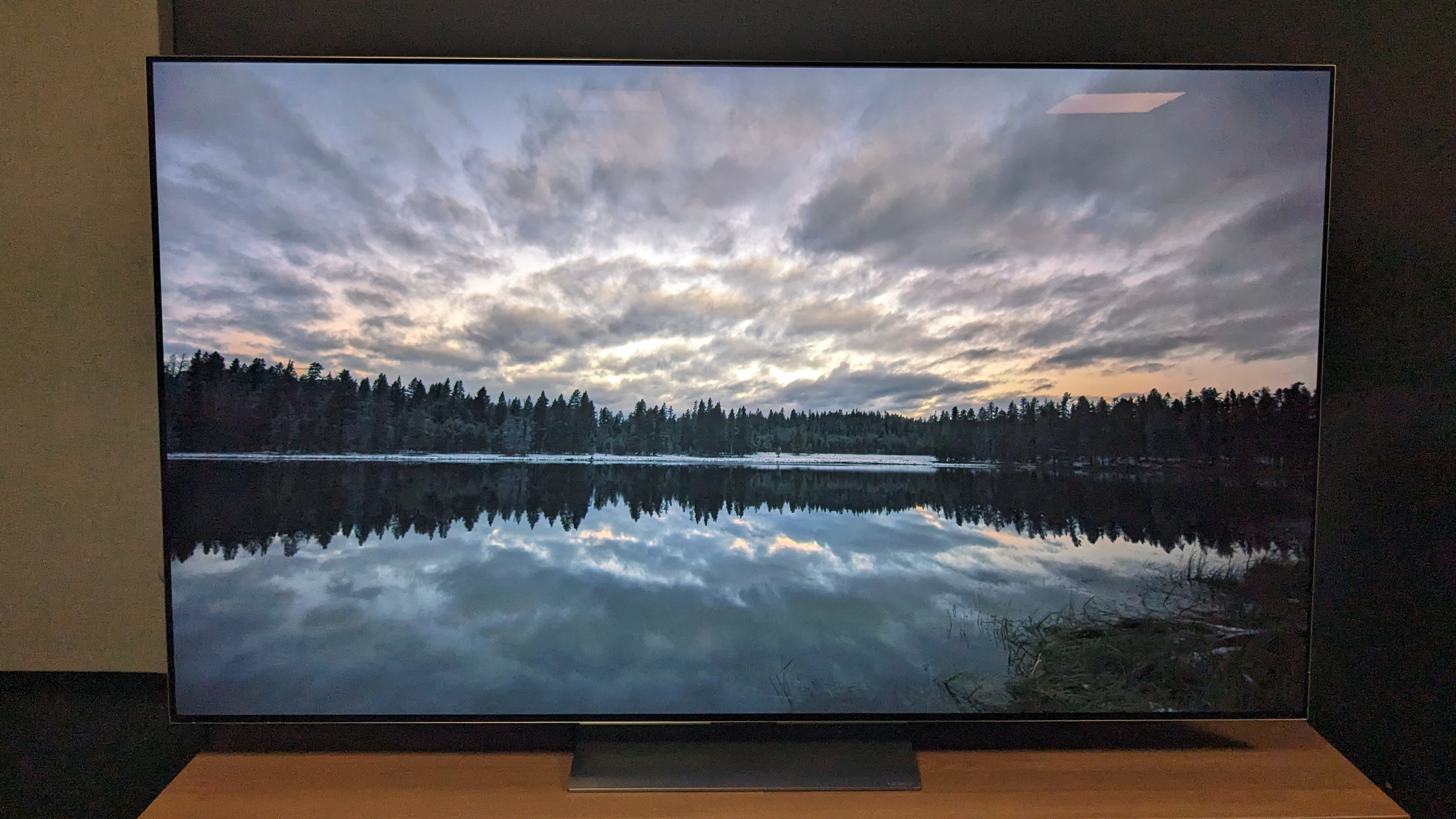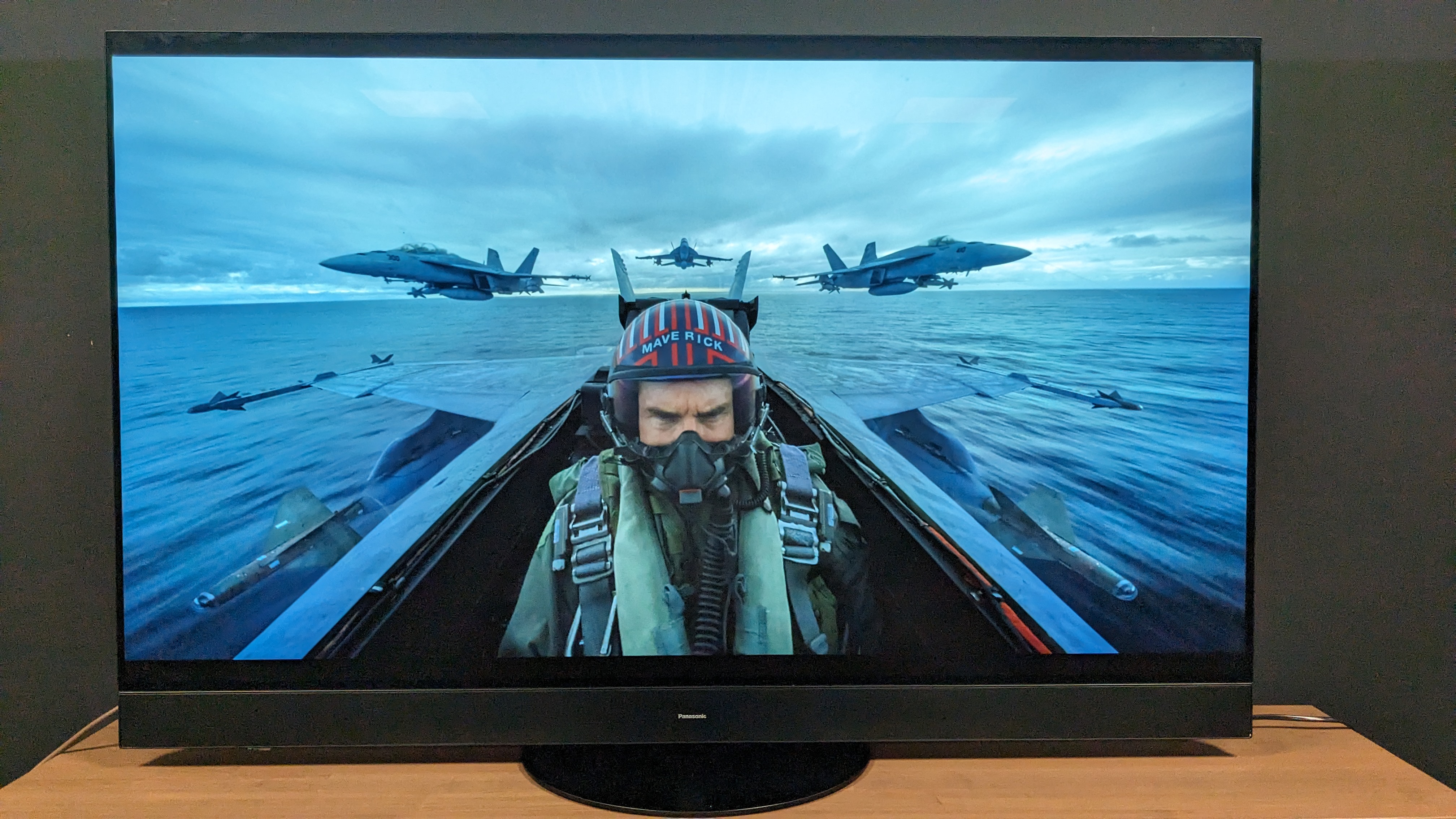AI processing is all over 2024 TVs, but I’m not convinced
Is AI really the future we need?

CES 2024 is over, but there were plenty of exciting announcements in the world of TV, including LG’s wireless, transparent OLED and Samsung’s transparent mini-LED display. Alongside this, major brands including LG, Samsung and more showed that OLED and mini-LED screens were the primary focus going forward (for now at least).
One word that dominated CES 2024 was AI. In whatever sector it was, be it computing, phones, entertainment and even electric vehicles, AI was everywhere and companies couldn’t get enough of it. Evidently we've learned nothing from HAL 9000 or the new Mission: Impossible, and now every company seems to be trying to embrace it in different ways to take products in a new direction.
With this in mind, it was only a matter of time before AI was more heavily integrated into TV pictures (machine-learning 'AI' tech has been used in TV processing for a while). On most TVs, there are already a myriad of settings and preset picture modes built-in for users to adjust the picture as to how they see fit. However, TV companies have been using AI to adapt pictures in recent years and 2024 seems to be the year where everyone wants you to know it.
I’m not on board, at least not yet. I’m all for new technology to improve TV screens, such as QD-OLED and micro lens array (MLA) tech that can be found on some of the best TVs on the market, but the use of AI to intelligently adapt a picture just doesn’t sit right or look right to me, and here’s why.

Refined doesn’t always look perfect
AI picture processing, such as the AI Picture Pro featured on LG’s TVs, new AI picture features on Samsung's 8K model (more on that below) and other AI upscaling or picture adjustment features were common announcements at CES 2024, with companies seemingly jumping on the AI bandwagon. Although AI has been used in TVs before in relatively subtle ways, it's the new fascination companies seem to have with AI picture processing we'll be focusing on.
I first came across AI picture options when working in AV retail, mainly with LG’s AI Picture Pro feature (this happened to be because LG is very popular and touted the AI Picture and Sound Pro modes proudly) and even at the time, I had reservations with AI Picture Pro. Comparing pictures with AI Picture Pro mode turned on vs off and using more neutral presets such as Filmmaker or Movie mode as an alternative, movies just looked more natural on the usual movie presets rather than the AI Picture mode.
This is the main problem I have with AI picture processing – it looks too artificial. Quite often AI processing will ‘sharpen’ an image to give it the impression of a more refined and detailed picture or upscale if it’s lower-res, but quite often it looks unnatural and too sharp, with edges and textures sticking out like a sore thumb, giving that fake-looking appearance, and when you’ve splashed out on one of the best OLED TVs, that’s not what you want.
Sign up for breaking news, reviews, opinion, top tech deals, and more.

LG has announced it’s adding more features to its AI Picture Pro for 2024, especially on its new Alpha 11 AI processor which is featured in its LG M4 and LG G4 OLED TVs, such as ‘Director Tone’, where AI will analyze the picture on screen to match to what the ‘director intended’, according to LG, down to the intended emotional response. This sounds dangerously open to AI's interpretation of 'as the director intended' and could end up looking artificial or overly saturated. We'll have to test this feature when we can get our hands on it, but I'm really not sure that the director's intention needs any more emphasizing than the version you get in Filmmaker Mode (which, lest we forget, was supposed to give you the movies as the director intended).
There’s also features like object detection and ‘AI Super Upscaling’, which again could lead into dangerous territory. What if you’re watching something older or intentionally grainy and AI deems it as noise and cleans it up, removing the more authentic image and giving it that artificial look again.
LG is far from alone in this. Samsung also unveiled its 2024 mini-LED TV lineup and featured in this was the NQ8 AI Gen3 chip, which is in the Samsung QN900D, its flagship 8K mini-LED TV. The new chip gives AI 8K Upscaling Pro, which upscales 4K and lower-res images to 8K, and AI Motion Enhancer Pro to smooth images such as sports by using AI to analyze what sport is being played. The problem is, as you’ll hear from TechRadar’s Matt Bolton below via TikTok, "it doesn’t look good" and gives off "uncanny valley" vibes (giving a sense of artificial/robot-like quality to the image). He compares it to motion smoothing, as something you'll probably want to turn off.
To be honest, this is unsurprising. Although it's great that Samsung is trying to make 8K TVs exciting again by suggesting its 8K upscaling will do an even better job of making low-res images appear in ultra hi-resolution, it's not a massive shock that for it to achieve this, it tweaks the image to the point that it gives off that robotic and unnatural appearance when it's turned on, something that seems to be a trend with these AI picture settings. They're starting to look to close to AI art, which often comes close to being photo-realistic, but looks wrong in motion.

Final thoughts
It sounds like I have a downer on AI in TVs and I’d like to make it clear, I don’t. Some of the touted AI features, such as tweaking the game optimizer/game mode settings based on the genre sounds like an extremely useful features on the best gaming TVs. I’m happy to be proven wrong if these AI features can make strides to improve the picture without interfering with it.
Panasonic has announced that for 2024, its elite new OLED TVs too will be using new AI processors and tech to improve the picture in its TVs, such as the 4K Remaster Engine which is introduced in its new HCX AI Mk II processor will aim to reduce noise when using the best streaming services.
Panasonic has always offered a more natural image to me, especially last year’s Panasonic MZ2000, and that certainly isn't because of AI. It's because Panasonic provides tons of picture settings and picture modes for people to play with to get the picture to what they want.
Thankfully, in a lot of cases, you can ignore these AI enhancements and modes. If you opt for one of LG’s OLEDs, such as last year’s brilliant LG G3 or C3, you still get a beautiful picture without touching AI Picture Pro. The same goes for Samsung, Sony and any other brands out there. If you like the AI features in your TV, then by all means use them – and as I said above, I’m happy to be proven wrong when we get the 2024 TVs in our testing labs. But, from what I’ve heard and experienced so far, AI processing on TVs still won't excited me in 2024.
You might also like...

James is the TV Hardware Staff Writer at TechRadar. Before joining the team, he worked at a major UK based AV retailer selling TV and audio equipment, where he was either telling customers the difference between OLED and QLED or being wowed by watching a PS5 run on the LG 65G2. When not writing about the latest TV tech, James can be found gaming, reading, watching rugby or coming up with another idea for a novel.